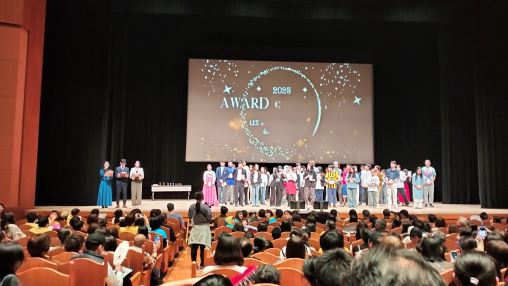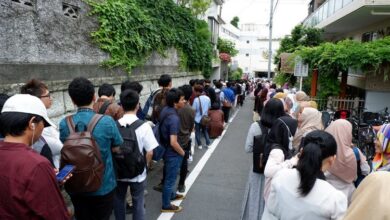
By Ali Syarief
Science whispers a profound truth: every human being carries within them the seeds of mathematics and language. These are not mere learned skills—they are the music of the mind, waiting to be heard. Every child is born with curiosity, every mind capable of exploring patterns and words, numbers and stories. The question is not whether we can learn, but whether our environment nurtures what is already within us.
From the very first days of life, humans possess what psychologist Stanislas Dehaene calls a “number sense”: “Infants can discriminate between different quantities and possess an intuitive sense of numbers long before formal education.” Even a newborn can sense more from less, hinting at the hidden rhythm of numbers that flows naturally within us. With patience, practice, and curiosity, this rhythm unfolds into arithmetic, algebra, and the delicate dance of logical reasoning. Numbers become not only tools for calculation but instruments for creativity, exploration, and understanding the world.
Language, too, is a gift woven into our being. As Noam Chomsky reminds us, children are born with the capacity to grasp the structures of language, to hear meaning in sound and shape thoughts into words. Vocabulary and grammar rise effortlessly like rivers finding the sea, growing into the art of reading, writing, and eloquent speech. Through language, humans express dreams, share knowledge, and connect hearts. Every story told, every sentence constructed, strengthens the invisible bridge between thought and understanding.
Yet potential alone is not enough; it requires nurturing. The environment we live in, the stories we hear, the encouragement we receive—these shape how our abilities bloom. This is where the concept of LEX/HIPPO Family Club becomes profoundly relevant. In an environment that emphasizes playful learning, exposure to multiple languages, and cognitive exercises from an early age, children can develop both mathematical reasoning and linguistic ability simultaneously. LEX/HIPPO Family Club embodies the principle that learning is most effective when it is joyful, consistent, and embedded in family and community support.
Every question asked, every problem solved, every word spoken and written strengthens the invisible threads connecting thought to understanding, numbers to logic, and letters to meaning. When children are encouraged to explore, to experiment, and to express themselves freely, they discover that numbers are not intimidating and words are not limiting—they are tools of empowerment. Mathematics teaches clarity of thought and problem-solving elegance; language opens doors to imagination, empathy, and communication.
Education, therefore, is not merely about memorizing formulas or learning vocabulary. It is about awakening the latent genius inside every human being, guiding them to see patterns where others see chaos, to find meaning where others hear noise. It is about fostering confidence and curiosity, allowing children to approach the world with joy and readiness to learn. The LEX/HIPPO philosophy perfectly aligns with this vision: by creating a nurturing, stimulating, and language-rich environment, it transforms potential into skill, curiosity into mastery, and innate abilities into lifelong competencies.
Mathematics and language are not privileges for the select few—they are the birthright of all. They are bridges from curiosity to understanding, from thought to expression, from potential to achievement. In a LEX/HIPPO-inspired environment, every child can experience this transformation, supported by family, mentors, and peers. By honoring these gifts, we do more than teach skills; we awaken the innate genius within, guiding every mind toward the beauty of knowledge, the power of communication, and the joy of discovery.
Ultimately, nurturing children’s mathematical and linguistic abilities is not just about building intellect; it is about shaping character, resilience, and confidence. It is about equipping every individual to navigate the complexities of life with clarity, compassion, and creativity. In every number counted and every word spoken, a child discovers not only the world around them but also the infinite potential within themselves. And in this, every human can—because the seeds of genius lie dormant in every heart, waiting only for the right soil, light, and care to bloom.



